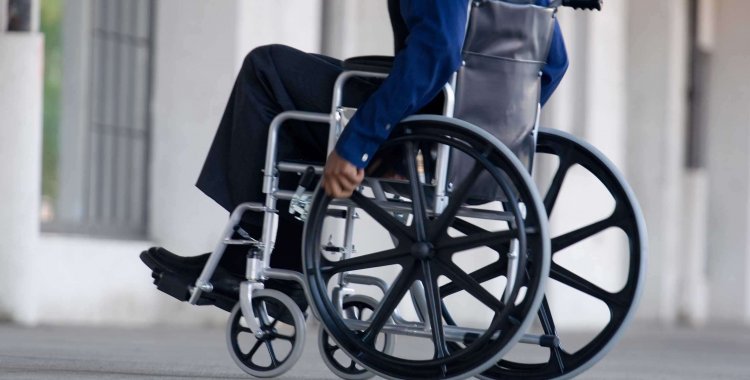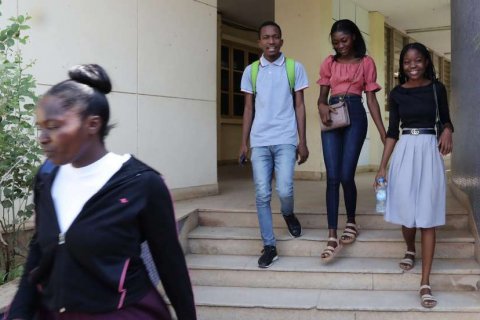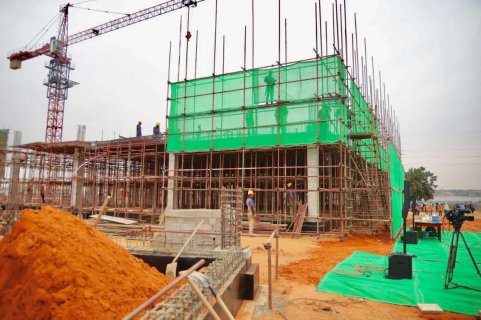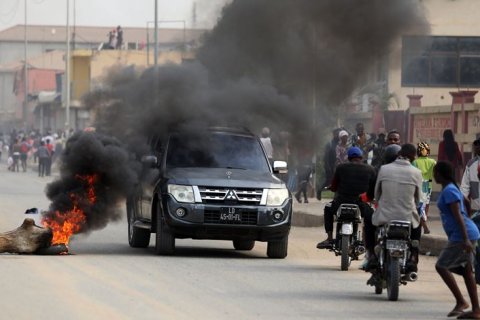Adão Ramos, vice-president of the National Union of People with Disabilities in Angola and for Reintegration (Undar), says that the approval of various legal provisions on people with disabilities is only a "show" by the authorities.
"That must be the idea, to put on a show, to seem that we are also civilized. Because, otherwise, I do not see absolutely no guarantees of the implementation of this same protocol, what I feel is that there is a conscious lack of will on the part of the authorities to that the inclusion of people with disabilities actually takes place", said the official this Wednesday.
Speaking to Lusa, as part of the ratification by Angola of the Protocol to the African Charter on Human and Peoples' Rights on the Rights of Persons with Disabilities in Africa, the vice-president of Undar said "there are no guarantees" of its implementation.
"I don't know if this is for laughing or crying, it's strange at all, because I'm not seeing what guarantees there are for the implementation of this protocol that Angola has ratified", he underlined.
Adão Ramos recalled that Angola has already ratified several United Nations documents on people with disabilities, has ordinary laws, such as the Accessibilities Law approved in 2016, but, he stressed, "everything gets stuck in the implementation".
"What would be easier to do, for example, with the application of the Accessibility Law, but absolutely nothing happened, there are architectural barriers and I would call them architectural barriers", he noted.
Because "these barriers are not built unconsciously, it is with the knowledge of the laws that they do not exist and, even so, these newly built constructions are built and seen, between sidewalks and other spaces where accessibility is not is observed".
Angola commits to "modify all infrastructure" in the country inaccessible to people with disabilities, after ratifying the Protocol to the African Charter on Human and Peoples' Rights on the Rights of Persons with Disabilities in Africa.
According to the legal instrument, whose ratification resolution was approved by parliament last Thursday, Angola must also establish a "universal design for all new infrastructures".
Buildings, roads, transport and other facilities both outdoors and indoors, including schools, housing, medical facilities and workplaces are included in the accessibility framework under the protocol.
Adão Ramos, also coordinator of the installation commission of the National Association of Artists with Disabilities of Angola (ANADA), reiterates that there is no effort by the authorities to implement the laws in force and is skeptical about the protocol.
"It is worrying in all respects and I understand that organizations and people with disabilities have to do much more to draw the attention of those who should care about everyone about the need to have a serious and responsible concern for the inclusion of people with disabilities", he stressed.
The protocol, "in which the Angolan Government undertakes, among various actions, to modify all the country's infrastructures, is much more ambitious than the others for which we have been debating for its fulfillment, but nothing happens".
"Absolutely nothing is moved and even worse is that there is no supervision for compliance with this law (Accessibility) not to mention penalties for people or institutions that do not apply them and trample the same laws", he shot.
In addition to the Accessibility Law, the Law on Persons with Disabilities, approved in 2012, and the presidential decrees that regulate the reservation of vacancies and procedures for hiring people with disabilities and on the intervention strategy for the social inclusion of children with disabilities and the protection strategy for people with disabilities are also included in the Angolan legal system.
The coordinator of the ANADA installation commission regretted, on the other hand, the decree that regulates the reservation of vacancies for the hiring of people with disabilities, which comprises a quota of four percent for the public sector and two percent for the private sector.
"I referred to the quotas for employability, we have a considerable number of unemployed people with disabilities and when they are employed, even though they have qualifications for much more, the jobs are precarious, they are limited to the lowest categories and functions", concluded Adão Ramos.







